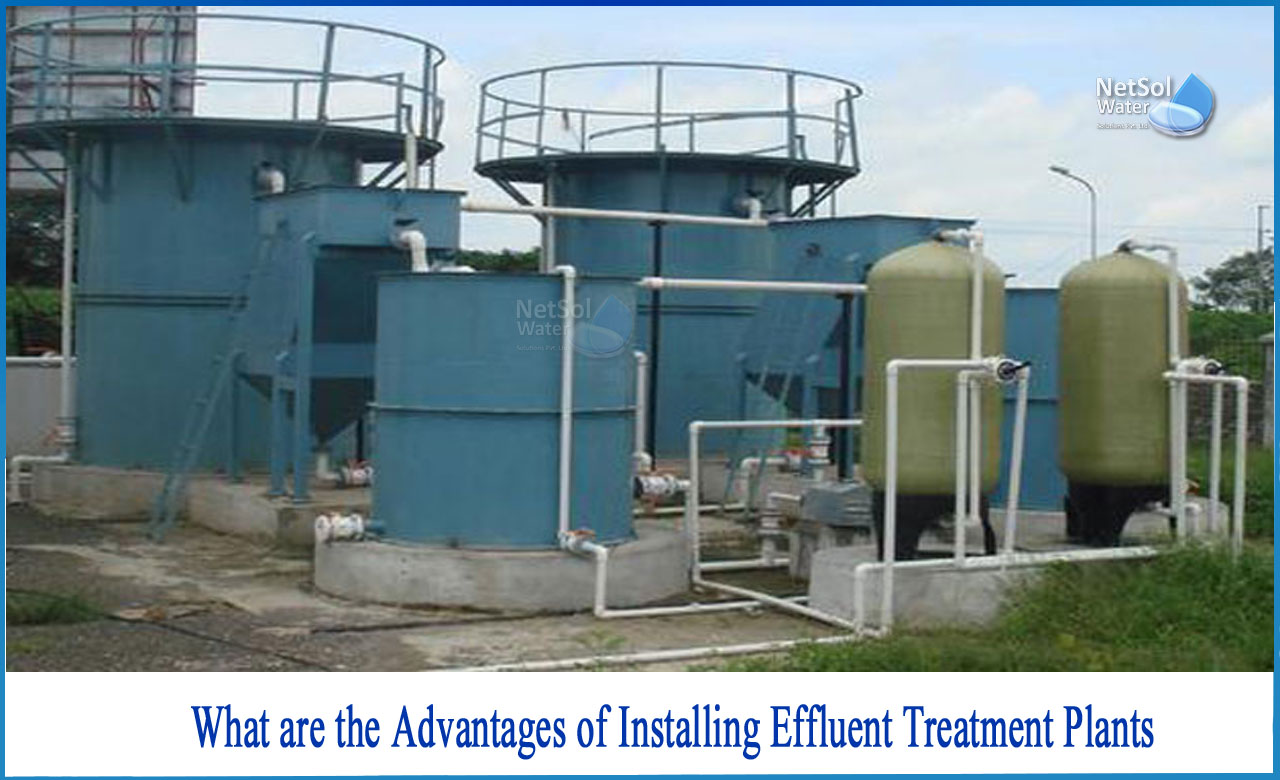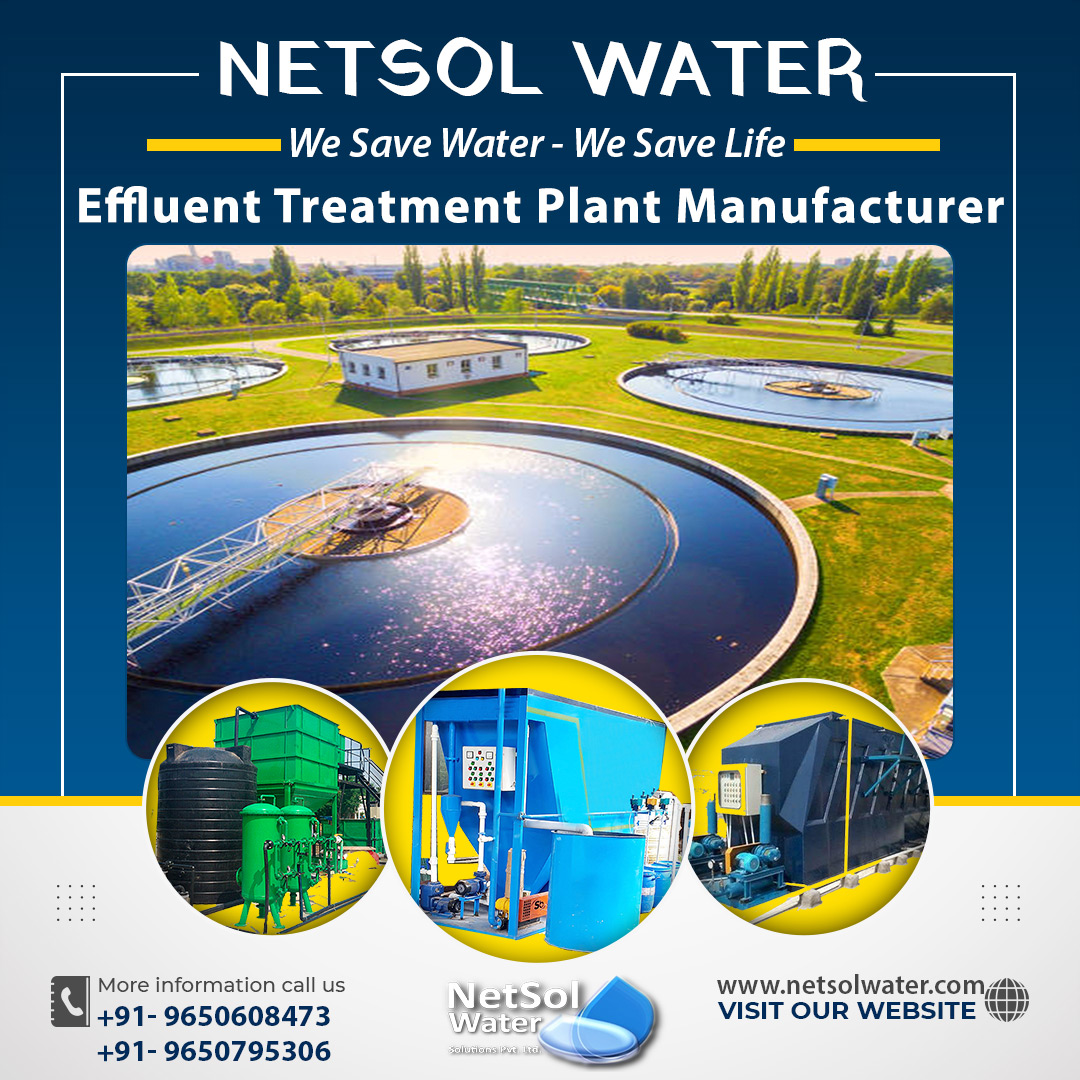What are the advantages of installing ETP Plants?
Netsol Water design, manufacture, supply, and commission Effluent Treatment Plants (ETPs) on a turnkey basis for a variety of wastewaters and effluents that combine advanced physico-chemical treatment processes with a tertiary polishing system to remove organic, inorganic, oil and grease, heavy metals, and suspended solids.
Our technique includes analysing effluent samples for various effluent parameters based on their nature and compositions, conducting treatability studies using various methodologies to assess techno-commercial feasibility, and designing treatment schemes and procedures to meet the purpose and requirement.
Our ETP systems are very small, have custom designs, are portable, have a small footprint, and are energy efficient. It is feasible to upgrade or modify the current ETP system in order to meet the Pollution Control Agency's intended limiting criteria.
Physico-chemical Treatment in ETPs
The physico-chemical treatment concept is followed by polishing treatments such as sand filtration, activated charcoal treatment (adsorption), ozonisation (chemical oxidation), ultrafiltration (UF), reverse osmosis (RO), and evaporation (If required).
Netsol’s range of Effluent Treatment Plants
Our effluent treatment p?lants include the following:
A: ETP CONTAINERIZED TYPE
Capacity: 25 – 150 KLD, as per client’s requirement.
Technology: Physical, Chemical, Biological and Reverse Osmosis
Features:
1: Operation is semi-automated.
2: In comparison to traditional designs, this one takes up less room.
3: Aesthetically pleasing and compact.
4: On-site installation and commissioning time is cut in half.
5: Operation is simple and straightforward.
6: Disassembly and transporting are simple.
7: Made-to-order item.
Civil Work: Collection Tank and Container Foundation.
B: ETP - CONTINUOUS TYPE
Capacity: 15to 1000 KLD, as per client’s requirement.
Treatment: Physical, Chemical, Biological and RO.
Features:
1: Operation is semi-automated.
2: Internal FRP Coating on MS Process Tanks.
3: Online pH monitoring and automatic chemical dosing.
4: Advanced filtration technologies such as ultrafiltration (UF) and reverse osmosis (RO) for zero liquid discharge.
5: Sludge-handling system that is cutting-edge.
6: Compact design, requiring a small footprint.
7: The treated effluent quality is superior to that of a traditional system.
8: Corrosion-resistant UPVC pipework and FRP/Epoxy-coated MS tanks.
9: Civil/MS Fabricated Process Tanks (RCC).
Typical Industries: Automobile, Metal pre-treatment, Pharmaceuticals, Chemical, etc.
C: CETP CHEMICAL, BIOLOGICAL TYPE
This sort of facility is known as a combined Effluent Treatment Plant, and it can be batch or continuous. The chemically treated effluent will be subjected to biological treatment in order to remove organic debris and keep TDS levels under control.
Capacity: 25 to 1000 KLD, as per client’s requirement.
Treatment: Physical, Chemical, Biological andFiltration.
Features:
1: Operation is semi-automated.
2: Internal FRP Coating on MS Process Tanks.
3: Online pH monitoring and automatic chemical dosing.
4: Advanced filtration technologies such as ultrafiltration (UF) and reverse osmosis (RO) for zero liquid discharge.
5: Sludge-handling system that is cutting-edge.
6: Compact design, which necessitated a small footprint.
7: The treated effluent quality is superior to that of a traditional system.
8: Corrosion-resistant UPVC pipes and FRP/Epoxy-coated MS tanks
Process Tanks: MS Fabricated/Civil (RCC).
Typical Industries: Pharmaceuticals, Chemical, Paint, Textile, Sugar.
D: ETP - BATCH TYPE (COMPACT MODULAR)
Capacity: 1.0 to 5 KLD.
Technology: Physical, Chemical and Filtration.
Features:
1: Low initial investment: Very cost effective.
2: There are two types of batches.
3: Atomization can be done manually, semi-automatically, or fully automatically.
4: Compact and tried-and-true design: a small footprint is required.
5: High-quality components and mounting items, including a special sludge pump, corrosion-free UPVC pipes, and FRP/Epoxy-lined MS tanks.
6: Water Recycle: Advanced treatment methodologies such as UF and RO make it feasible to recycle treated water.
7: Operation and maintenance: It is very quiet in operation and can be operated by any inexperienced person with sufficient instruction.
Typical Industries: Metal pre-treatment, chemical, etc.
E: ETP - PACKAGE - COMPACT MODULAR
Capacity: 10.0 to 30 KLD.
Technology: Physical/Chemical/Filtration.
Features:
1: Atomization can be done manually, semi-automatically, or fully automatically.
2: Compact and tried-and-true design: Requires a very small footprint.
3: High-quality components and mounting items, including a special sludge pump, corrosion-free UPVC pipes, and FRP/Epoxy-lined MS tanks.
4: Water Recycle: Advanced treatment methodologies such as UF and RO make it feasible to recycle treated water.
5: Operation and maintenance: It is very quiet in operation and can be operated by any inexperienced person with sufficient instruction.
F: ETP - ZERO LIQUID DISCHARGE (ZLD)
Capacity: 5.0 to 300 KLD.
Technology: Physical / Chemical / Advance Filtration.
Features:
1: Treatment for ZLD at an advanced level.
2: Atomization can be done manually, semi-automatically, or fully automatically.
3: Compact and tried-and-true design.
4: Consists of normal ETP, UF and RO.
5: Water Recycle: Advanced treatment methodologies such as UF and RO make it feasible to recycle treated water.
Typical Industries: Chemicals, Pharmaceuticals, Hazardous Effluent, Metal pre-treatment, etc.
Netsol Water collaborate with a wide range of international organizations to tackle complicated wastewater problems by strategically integrating modern treatment technology with practical solutions. We can provide you the best effluent treatment systems in the world with proper customization as per the requirements.




